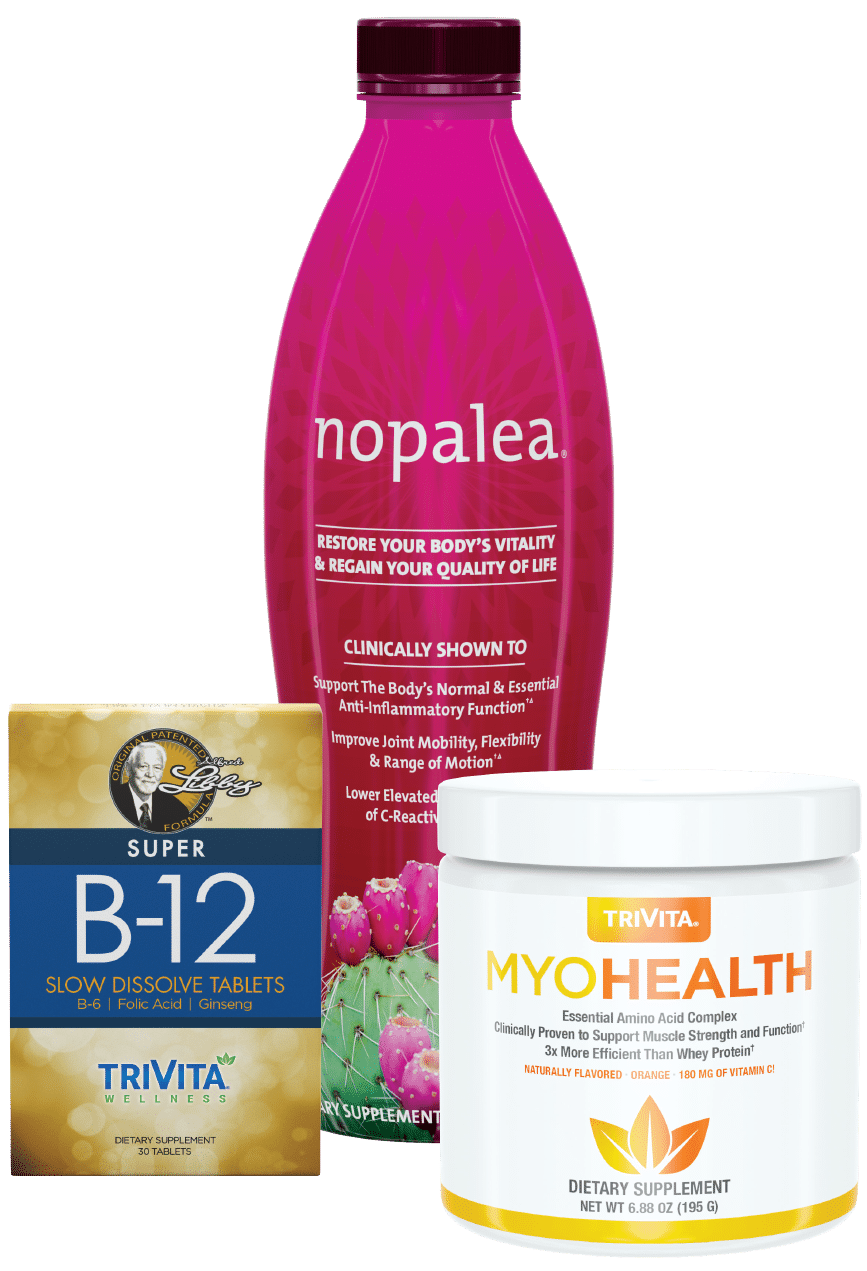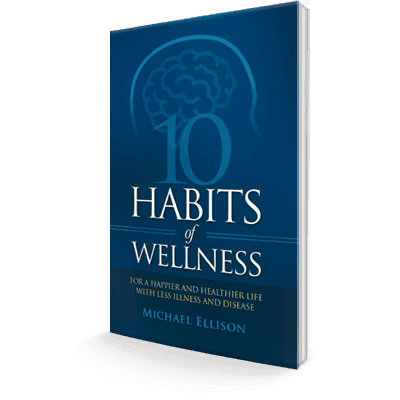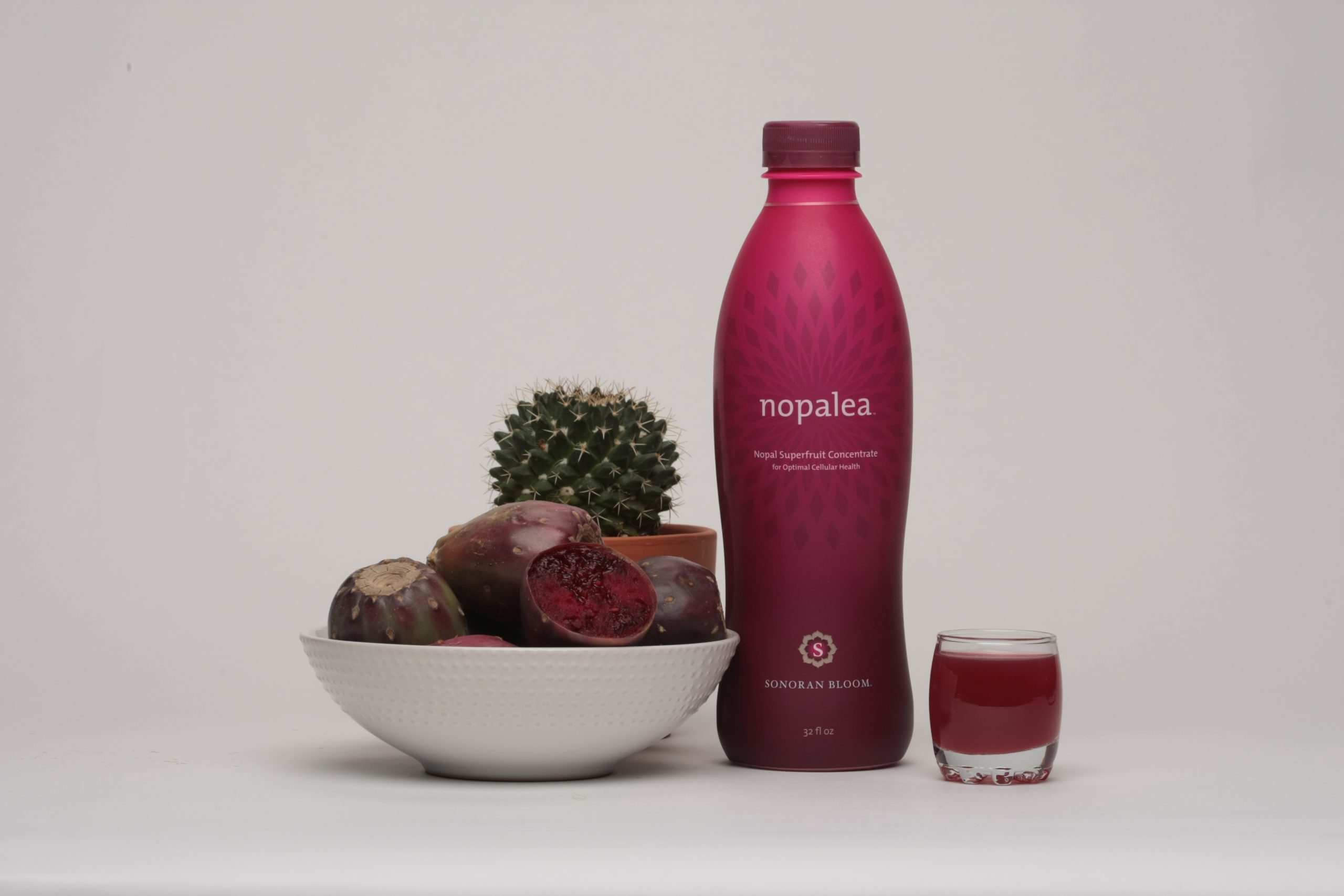By Dr. Paul Bernitt, TriVita Director of Wellness Services, Board-Certified Doctor of Holistic Health
Have you ever felt foggy, moody or forgetful… and wondered why? One hidden reason could be chronic inflammation. When your body stays “on alert” for too long, it doesn’t just affect your joints or digestion. It also affects your brain—your focus, memory and mood.
The good news: you can calm it. In this short newsletter article, I’ll show you simple ways to lower everyday inflammation and support a clearer mind using just two daily allies that I trust. Together with healthy habits, they can help you feel steadier, think more clearly and live with more peace.
Why inflammation affects your brain
Inflammation is your body’s natural response to stress, germs and injury. Short bursts are helpful. But, when low-grade inflammation lingers, it can disturb brain cells and the blood vessels that feed them. One standard blood marker for inflammation is C-reactive protein, or CRP. High CRP is a sign that your body may be fighting more than it should.
A large study published in JAMA Neurology looked at more than 350,000 adults in the UK Biobank, a research project that enrolled people between 2006 and 2010 and has followed their health over time. The study found 15 lifestyle and health factors linked to higher risk of young-onset dementia (under age 65). Among them were vitamin D deficiency and high CRP—both tied to inflammation—along with social isolation, hearing problems, depression and several heart-metabolic risks.1
The 15 lifestyle and health risk factors
The researchers identified 15 risks that together paint a clear picture of how lifestyle and health influence brain outcomes.1 They include:
- Lower education levels
- Socioeconomic disadvantage
- Genetic risk (APOE ε4)
- Hearing loss
- Social isolation
- Depression
- Alcohol use disorder
- Stroke
- High blood pressure
- Diabetes
- Heart disease
- High cholesterol
- Reduced handgrip strength
- Vitamin D deficiency
- High C-reactive protein (CRP)
What’s striking is that many of these are modifiable. Choices you make daily—about nutrition, activity, connection and supplement support—can help protect your mind. Let’s zoom in on two inflammation-related factors you can act on today: vitamin D and CRP.
Vitamin D: The sunshine nutrient for brain and immune balance
Vitamin D is more than the “bone vitamin.” It helps regulate immune activity and reduces inflammation. Low vitamin D was one of the clearest risks identified in the UK Biobank study. Deficiency may lead your immune system to overreact, fueling chronic inflammation that harms brain cells.
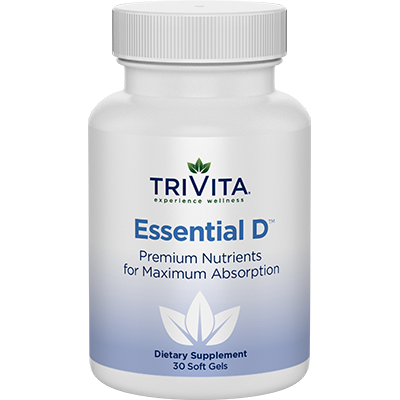
Why it matters: Vitamin D supports genes involved in brain function, calms inflammatory chemicals and protects nerve signaling.2 Yet, deficiency is widespread due to indoor living, less sun exposure and age-related changes.
That’s why I recommend TriVita’s Essential D™3—a simple way to maintain healthy vitamin D levels. Taken daily, it helps protect your brain and immune system against the silent risks of deficiency. TriVita’s Essential D3 uses vitamin D3 (cholecalciferol)—the most natural, effective form—which your body uses best. It’s the type your skin makes from sunlight, so it raises your blood levels more effectively than vitamin D2.
CRP: A red flag for inflammation
C-reactive protein is a marker that can be checked with a simple blood test. High CRP is a signal of chronic inflammation—and in the JAMA Neurology study, it was strongly tied to early dementia risk.
Why it matters: Ongoing inflammation stresses blood vessels, reduces oxygen delivery and makes nerve cells vulnerable. Lowering CRP helps protect your brain’s clarity and resilience.
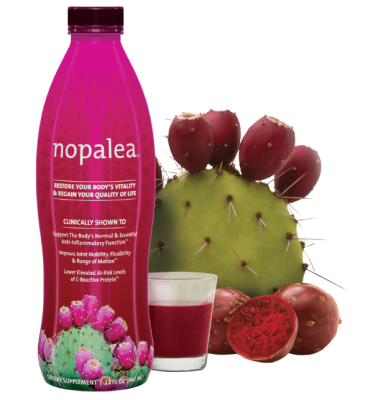 How to address it: Daily movement, quality sleep, plant-rich meals and stress reduction all help. Adding Nopalea®, rich in anti-inflammatory betalains from the nopal cactus, gives your body extra support to calm CRP levels naturally.
How to address it: Daily movement, quality sleep, plant-rich meals and stress reduction all help. Adding Nopalea®, rich in anti-inflammatory betalains from the nopal cactus, gives your body extra support to calm CRP levels naturally.
When it comes to supplements, proof matters. That’s why I was excited about a double-blind, placebo-controlled human study on Nopalea—the gold standard of research design. In this kind of study, neither the participants nor the researchers know who is getting the real product and who is getting a placebo, which ensures reliable and unbiased results.
The study showed four key benefits of taking Nopalea daily:3
- Lower CRP (C-reactive protein) levels
CRP is a blood marker of inflammation. In the study, participants who took Nopalea saw a significant reduction in CRP, meaning their bodies showed fewer signs of harmful, chronic inflammation. - Improved range of motion
Those taking Nopalea were able to move more freely, especially in joints that had been stiff or uncomfortable. This makes everyday activities—like walking, climbing stairs or reaching overhead—easier and less painful. - Reduced reliance on pain medication
Participants reported needing fewer over-the-counter or prescription pain meds while taking Nopalea. That’s a huge win, since long-term use of pain medication can come with serious side effects. - Better overall quality of life
Participants enjoyed a noticeable improvement in daily well-being. They could do more of the things they loved… without feeling held back.
Why this matters for your brain
Since chronic inflammation is linked to brain fog, mood changes and even early dementia risk, lowering it with Nopalea is about more than easing joint discomfort… It’s about supporting your whole-body health—including your mind…
Calm inflammation for a clearer mind
You don’t need a complicated routine. Start with these simple steps:
- Check your D levels. Ask about a vitamin D test, and take Essential D3 consistently.
- Nopalea daily. Plant compounds work best as part of your daily regimen.
- Move often. Even a brisk walk improves blood flow and clears inflammation.
- Prioritize sleep. Aim for 7 to 9 hours to restore brain health.
- Eat color. Bright plants and fish rich in omega-3s fight inflammation.
- Stay connected. Community supports emotional and brain health.
- Protect hearing. When your hearing is compromised, your brain carries the burden… Safeguard your hearing to ease the load.
- Breathe and pray. Managing stress lowers inflammation at its root.
How Essential D3 and Nopalea fit into your day
- Morning: Take Essential D3 with breakfast.
- Afternoon or evening: Enjoy your daily Nopalea serving.
- Weekly: Review your habits and choose one small improvement.
The bottom line
Chronic inflammation doesn’t just harm your body—it messes with your mind. The UK Biobank research proves that daily choices matter. By keeping vitamin D levels healthy and lowering CRP with the help of Essential D3 and Nopalea, you give your brain the steady support it deserves.
Your mind is precious. Protect it every day—with Nopalea and TriVita’s Essential D3.
REFERENCES
- https://jamanetwork.com/journals/jamaneurology/fullarticle/2813439
- https://pmc.ncbi.nlm.nih.gov/articles/PMC9610817/
- Jensen, G. “Evaluation of Activity Levels, Inflammatory Markers, and Overall Wellness.” 2019. Study based on 3-ounce per day serving size.

